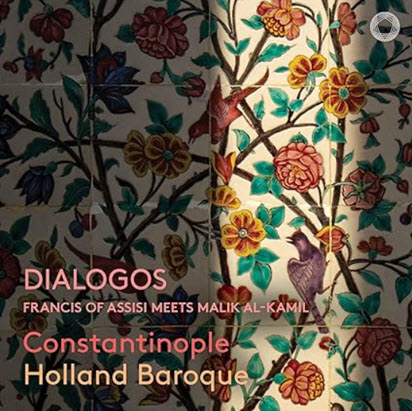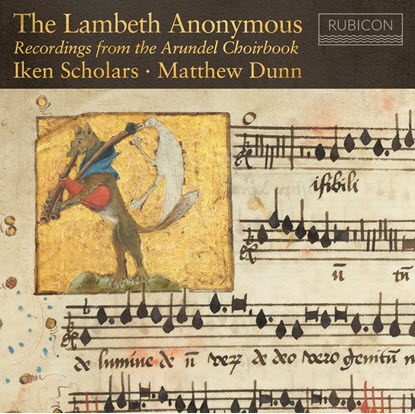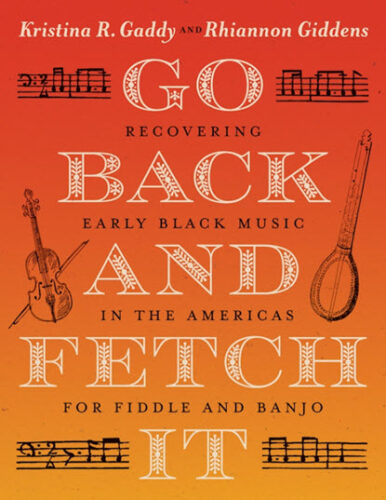by Karen M. Cook
Published August 9, 2025
A 99 Years Celebration of the International Pipers’ Guilds. Flanders Recorder Duo and Bamboo Friends. Available from the Flanders Recorder Duo website.
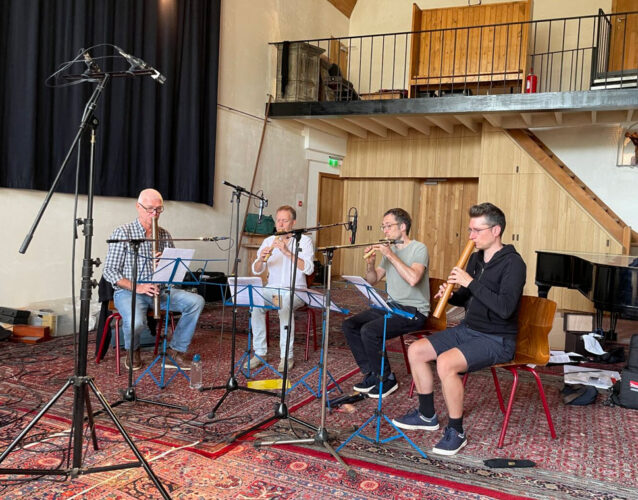
The Flanders Recorder Duo has, for almost a decade, continued the stellar legacy of their former ensemble, the Flanders Recorder Quartet. After the Quartet decided to part ways, members Tom Beets and Joris van Goethem forged ahead, exploring duet repertory from across centuries on their first album, 2021’s FR2. (Read EMA’s review.) That album, largely comprised of recorder works as one might expect, also contained the world premiere recording of Ralph Vaughan Williams’ Suite for Two Pipes, featuring bamboo pipes handmade by the performers themselves. On this new album, those pipes — and many others — are now the main attraction.
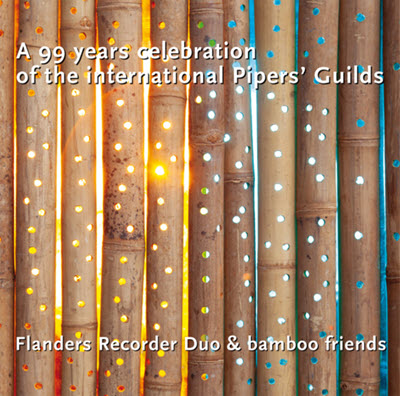
The album celebrates the 99th anniversary of the International Pipers’ Guild, a phenomenon whose history is spelled out in careful, loving detail in the liner notes. As we learn, the kinds of bamboo pipes featured on this recording were first developed in the 1920s by music teacher Margaret James, who wanted to provide inexpensive musical instruments to the poorer children in her school. Within a few years, hundreds of people came to her to learn how to construct such instruments for themselves. She founded the Pipers’ Guild of Great Britain in 1931, with schools in numerous other countries quickly following suit, teaching people how to build and play their own pipes. In fact, every pipe featured on this new recording was made by members of either the Pipers’ Guild of Great Britain or the Dutch Pipers’ Guild. One charming aspect to the liner notes is that each maker provides a brief synopsis of their instruments. As van Goethem observes, “There’s something magical about playing instruments you handcrafted yourself.”
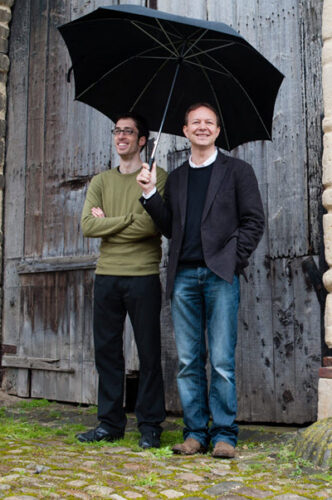
Vaughan Williams makes several repeat appearances here, and rightfully so; while he didn’t actually make his own pipes, he was deeply invested in them as a way of bringing music to the masses and was president of the Pipers’ Guild of Great Britain from 1933 on. His four-movement Suite for [Four] Pipes, which opens the album, entrances at first listen; the open-interval melody recalls a pastoral bird call at sunrise, with the other three lower instruments imitating it in quick succession. The musical caliber of the performers is made immediately apparent in this Suite; the ensemble, here augmented by two colleagues, is utterly locked in, from intonation to articulation to a palpable sense of shared phrasing and purpose, as is evident in the concluding Finale.
From there, the group shifts to a well-known Bach Prelude & Fugue, which feels at once familiar and brand new. The timbre here fits squarely in the fantastical gap between recorders and pipe organ, and the lowest pipes are enjoyably resonant. The FR2 duo shines on a short Telemann sonata before returning once more to Vaughan Williams.
These next works, in my opinion, are the heart and soul of the recording; three movements of his Viola Suite, arranged for pipes by Vaughan Williams himself, followed by his Canzona, all receive world premiere recordings here. The combination of bamboo pipes with piano on the Viola Suite is such an unexpectedly warm, compelling sound, prompting waves of tender nostalgia and intimate, cherished memory. Some fun medieval pieces follow, providing a welcome relief from the intensity of emotion in the previous pieces. The Estampie is particularly fun to hear with this instrumentation, as it sounds eerily close to a portative organ.
Vaughan Williams returns again with the Suite for Two Pipes before the recording concludes with two stellar modern works by Henk Badings and Stijn Kuppens. The Badings quartet is delightful; I particularly liked the “Valzer strano” movement with its strains of demented carousel. Kuppens’s “Ou beau chastel, Woodstock 4” is a spellbinding conclusion; the timbral interplay between pipes and cello is gorgeous, and the contemporary reworking of an early modern chanson, a unicum from the Leuven Chansonnier, is a stellar way not only to conclude this anniversary disc but to celebrate the guild itself, reaching at once into the past and simultaneously into the future.
Karen M. Cook is associate professor of music history at the University of Hartford. She specializes in late-medieval music theory and notation, focusing on developments in rhythmic duration. She also maintains a primary interest in musical medievalism in contemporary media, particularly video games. For EMA, she recently reviewed Vox Feminae from Les Kapsber’girls.

